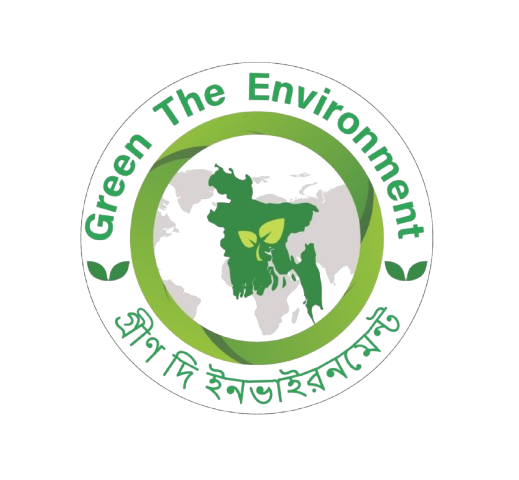Our Members
Green The Environment
About the organisation
Green The Environment Bangladesh is a completely non-sectarian, non-political, non-profit, voluntary, social, Famine Lead, democratic and welfare oriented social organization.
GTE VISION:
We are committed to create strong and independent society without inequalities and discrimination, and where everybody enjoys equal opportunities.
GTE MISSION:
To Foster Democratic & Equitable Living, Environment, where all Vulnerable people especially underprivileged, women and Children have to access to Education, Health, Sustainable Livelihood opportunity and essential infrastructure services irrespective of their economic and social status.
- To work for the people and with the people irrespective of religion, caste, ethnicity, creed, belief, age and sex who are in any form of marginalization and exclusion.
- To implement appropriate, need based, result oriented and right based development programs among government, civil societies, NGOs, and international
- To enhance capacity of personnel, institutions and groups who are involved in development and welfare
- To strengthen organizational sustainability for rendering services to the
GTE GOAL:
The goal of Green The Environment Bangladesh is to establish a right based society through sustainable socio-economic development of the target participants specially the children, women and other disadvantaged groups and thus help them in attaining a dignified livelihood in the family and the society as a whole.
OBJECTIVE:
- To improve socio economic status of disadvantaged people;
- To organize women and build their capacity for empowerment;
- To organize increase awareness of children, parents and community people to reduce child labor, child abuse, child trafficking and violation of child rights;
- To mobilize community people including parents, children, community people & duty bearers for playing positive role to establish human rights, child rights and women rights;
- To develop a society & economically vibrant and fit community through education and skill development;
- To enhance capacity of the children, youth, women, men, NGOs and other stakeholders and develop different modules & guidelines for strengthening cooperation & coordination among themselves for reducing socio economic vulnerability of people;
- To act as information center for sharing and exchanging information and services among individuals, groups and institutions working on human rights and dignity;
- To design training materials for working with the poor children, women and people with special needs with a view to reduce exploitation, enhance recognition, improve status and ensure safe working condition;
- To work for ecologically balanced environment and response to climate change;
SRHR publications/research
Background Worldwide, the climate is changing and affecting the health and
well-being of children in many ways. In this review, we provided an overview of
how climate change-related events may affect child and adolescent health and
well-being, including children’s mental and physical health, nutrition, safety
and security, learning opportunities, and family caregiving and connectedness.
Methods In this narrative review, we highlighted and discussed peer-reviewed
evidence from 2012–23, primarily from meta-analyses and systematic reviews.
The search strategy used a large and varied number of search terms across three
academic databases to identify relevant literature.
Results There was consistent evidence across systematic reviews of impact on
four themes. Climate-related events are associated with a) increases in posttraumatic stress and other mental health disorders in children and adolescents, b)
increases in asthma, respiratory illnesses, diarrheal diseases and vector-borne
diseases, c) increases in malnutrition and reduced growth and d) disruptions to
responsive caregiving and family functioning, which can be linked to poor caregiver mental health, stress and loss of resources. Evidence of violence against
children in climate-related disaster contexts is inconclusive. There is a lack of
systematic review evidence on the associations between climate change and children’s learning outcomes.
Conclusions Systematic review evidence consistently points to negative associations between climate change and children’s physical and mental health, well-being, and family functioning. Yet, much remains unknown about the causal pathways linking climate-change-related events and mental and physical health,
responsive relationships and connectedness, nutrition, and learning in children
and adolescents. This evidence is urgently needed so that adverse health and
other impacts from climate change can be prevented or minimized through well-timed and appropriate action.

